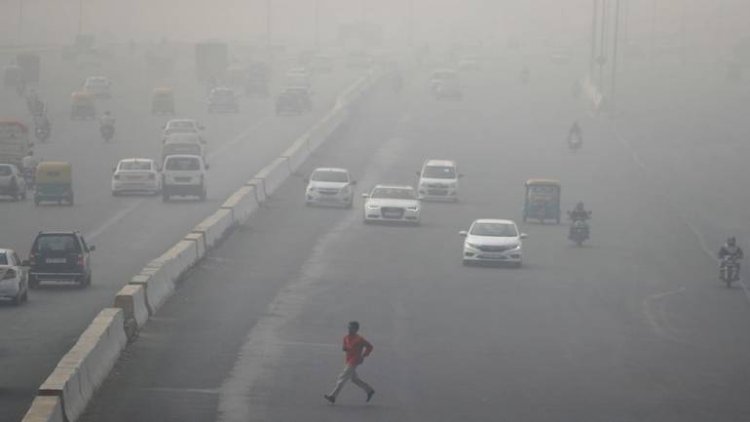IIT Kanpur's Pollution Control Project Before Diwali
In an effort to deal with dangerous air quality, the Indian Institute of Technology-Kanpur (IIT-K) is working on an innovative solution.

In an effort to deal with dangerous air quality, the Indian Institute of Technology-Kanpur (IIT-K) is working on an innovative solution. They plan to make artificial rain by releasing a mix of salts into the clouds. However, due to the current weather forecast, it's unlikely that they'll be able to do this within the coming week.
Manindra Agrawal, who leads the project at IIT Kanpur, explained that the skies are expected to be clear in the next week. While Agrawal and his team of about eight researchers are waiting for suitable weather conditions, they have started the process of getting approvals from different agencies for this procedure.
A week ago, the air quality in Delhi-NCR reached a critical level known as 'severe plus,' which poses significant health risks to the residents. The Indian government is taking measures to prevent further pollution escalation. Artificial rain can offer temporary relief to NCR residents who are desperate for clean air.
The procedure will likely take place after Diwali, depending on cloud availability and suitable weather conditions.
What is Cloud Seeding? Cloud seeding involves mixing various chemicals like silver iodide, dry ice, rock salt, and common salt within clouds to increase cloud density and boost the chances of rainfall. This process is aptly named cloud seeding because it involves "seeding" or initiating rainfall in the clouds. Clouds contain moisture, and when foreign particles are introduced, it triggers condensation. Once enough water accumulates, it leads to rainfall.
In June, Agrawal's team, comprising researchers from various fields, successfully conducted a test for artificial rain via cloud seeding on the college campus. They used an aircraft to release a chemical spray into dense clouds, resulting in substantial rainfall.
The cost of leasing a plane with specialized equipment is somewhat high. Along with the installation of these tools in the aircraft, it's estimated that the operation costs around Rs 3 to Rs 5 lakh per hour.
The project was initiated five years ago but faced delays due to the need for an imported flare set from the United States, which is attached to the wings of an aircraft to release the chemical mixture into the clouds.
What's Your Reaction?
















